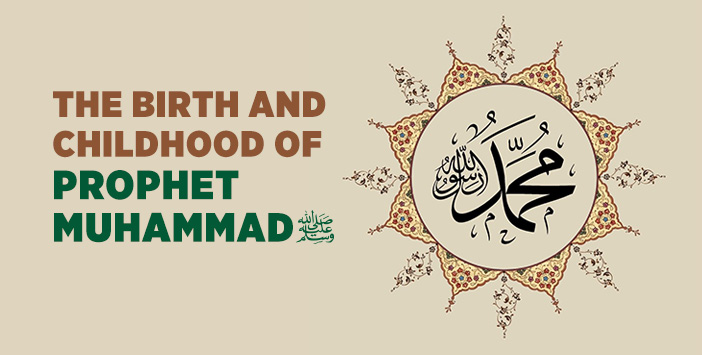The Light of Being worked as a shepherd before joining his uncle Abu Talib in trade. Shepherding was a profession that was held in high esteem by the Arabs; it was not uncommon to see even the children of the rich grazing sheep. Muhammad -upon him blessings and peace- as a shepherd…
The Light of Being worked as a shepherd before joining his uncle Abu Talib in trade. Shepherding was a profession that was held in high esteem by the Arabs; it was not uncommon to see even the children of the rich grazing sheep. Imparting unto them the precious skills of ruling and administering, shepherding, as confirmed by the following hadith, has moreover been the profession of all prophets well before their responsibilities of prophethood:
“All Messengers sent by Allah have been shepherds of sheep.”
It is reported that some Companions then asked the Blessed Messenger -upon him blessings and peace- whether or not he had also been occupied in that line of work, to which he plied the reply:
“Yes, indeed. I used to tend the sheep of the Meccans in return for a pay[1].” (Bukhari, Ijârah, 2, Anbiyâ, 29; Ibn Majah, Tijârat, 5)
Another similar hadith states:
“Musa was sent as a Prophet while tending sheep. Dawud was made a Prophet while he was tending sheep. I also used to tend my family’s sheep at Ajyad when I was granted with prophethood.” (Ibn-i Saad, I, 126)
The young Muhammad -upon him blessings and peace- is reported to have been twenty-five years of age when he worked as a shepherded the sheep owned by Meccans.
Shepherding in times of affliction has been emphatically praised in the following hadith, which describes it as a virtuous occupation:
“A person in one of the most propitious lines of work is he who grazes his sheep on a hilltop or in a valley; who furthermore performs his salat, gives his alms, worships his Lord until the day he dies and constantly does good to others.” (Muslim, Imarat, 125; Ibn Majah, Fitan, 13)
The path of solemnity and compassion and the capacity for reflection are paved for shepherds, as indicated by the hadith below:
“Serenity and solemnity follow shepherds.” (Bukhari, Manaqib, 1; Muslim, Iman, 84/52)
Looking after sheep and shielding them from wild animals nurture in the shepherd emotions of mercy and protectiveness, favorable towards the flourishing of virtues a prophet must possess, like patience when facing the possible disrespect and ignorance of his people, and compassion to all the creations of Allah, glory unto Him.
[1] Reports vary on what the term qararit, used in the hadith to denote the payment received, could mean. One report suggests that it was rather the name of a place in Mecca, while the other implies it being the plural of the term qirat, a type of currency, according to which the Messenger of Allah -upon him blessings and peace- used to shepherd the sheep of the Meccans in return for one qirat, or the twentieth of a dinar, per sheep, per day.
Source: Osman Nuri Topbaş, The Prophet Muhammed Mustafa the Elect, Erkam Publications




